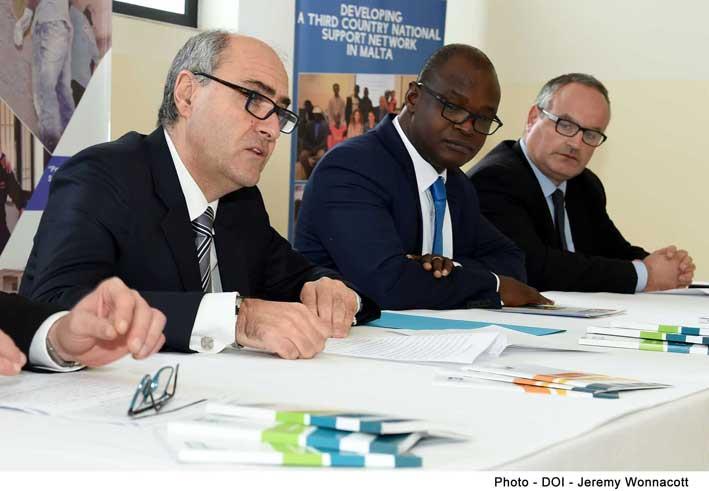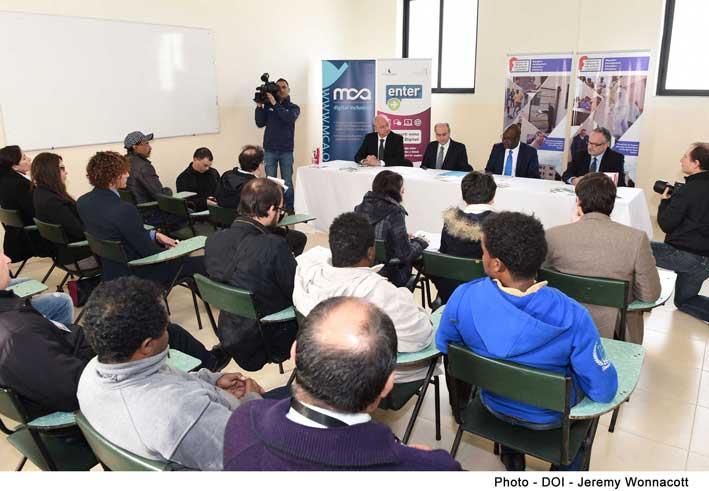Around 300 residents and support workers at the Marsa Open Centre are benefiting from free ICT training through the Malta Communications Authority's ENTER training programme, with the aim of empowering them and increasing their opportunities for employment, among other things.
The ENTER project is aimed at individuals between the ages of 25 and 64, and more than 2,500 individuals have already benefited from free training through 16 training centres.
The Marsa Open Centre has been operated and managed by the Foundation for Shelter and Support to Migrants (FSM) through a public-private partnership since 2010, and with the aid of EU funds, its residents have been offered various educational opportunities, including training in English language, Maltese culture, food handling and hygiene and first aid to empower them and increase their employability.
Dr Ahmed-Bugri.jpg
The open centre, which typically has a capacity of some 450-500 people but is presently housing only 300 due to ongoing refurbishment, is meant to be a temporary arrangement for asylum seekers and refugees until they are able to move into the community, and FSM managing director Ahmed Bugri noted that the centre aims to ensure that they are best equipped for their next step.
Dr Bugri said that the centre's residents - mainly young men - had a very positive disposition to information technology, and that as a result, the centre sought a collaboration with the MCA, which the authority was only too happy to enter into.

While IT courses had been provided in the past, this is the first course which is also being provided to support staff at the centre.
The course, which will take place at the open centre itself, lasts for 10 weeks, with morning and evening classes being offered for the convenience of residents, of whom many are in employment.
The training offered will start from the most basic of ICT skills, depending on the experience of each student.
Dr Bugri noted that among other things, the course should help participants prepare their CVs and look for employment opportunities which are out there and which they may not know about. He also pointed out that information technology was also invaluable in helping the centre's residents contact their families and friends in their countries of origin.

The initiative was also welcomed by Alex Tortell, the head of the Agency for the Welfare of Asylum Seekers, which oversees all open centres in the country.
Mr Tortell noted that it was also important to provide such training to failed asylum seekers who will eventually be repatriated to their country of origin, noting that the skills that they end up learning would help them make a difference on their return home.
He also appealed to the centre's residents to prioritise education, stating that while he recognised that the need to "work to survive" prevented them from taking up full-time education, it was important for them to think long-term and devote some time to enhancing their knowledge.
Parliamentary Secretary for Economic Growth José Herrera stressed that such initiatives were important in reducing the digital divide, noting that while the percentage of people in Malta who have never used the internet fell from 28% in 2013 to 25% last year, the country was still lagging behind the EU average of 15%.
But the parliamentary secretary also went off-script to make an appeal for more initiatives to help immigrants integrate, stating that this was essential for them to have a good quality of life.
He stressed that integration was ultimately a two-way process, stating that it would be bigotry not to accept that Maltese society and the government had a moral obligation to integrate with other cultures, but at the same time, immigrants also had a part to play.
Dr Herrera suggested that the educational services provided to immigrants should include teaching them what it means to be Maltese, providing them a background in Malta's history, its culture and its aspirations.